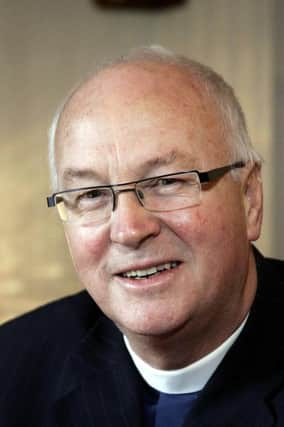The Inescapable truth of Easter


The Austrian army, coming to the relief of the village were still some miles distant, and it seemed as though Feldkirk would be taken with minimal resistance.
While Napoleon’s troops advanced by night, the citizens of Feldkirk gathered in their little church to pray for the safety of their village. It was Easter Eve. Next morning, at sunrise, the bells of the village pealed out across the countryside, as they had done for hundreds of years, in celebration of Christ’s resurrection. The French Revolution of twenty years before had dispensed with religion, and an angry mob had torn down the crucifix from Paris’s Notre Dame Cathedral.
Advertisement
Hide AdAdvertisement
Hide AdAs a result, Napoleon’s officers did not hail the Easter dawn. They took the sound of the church bells to indicate that an Austrian relief force had moved into the village in the hours of darkness. Hastily, plans for its occupation were abandoned, and the village was delivered.Just as Easter bells meant deliverance for the citizens of Feldkirk, so the message of Easter itself is a message of deliverance from all that devastates life.
Sceptics may question what actually happened at the first Easter Day. After all, there was no CCTV to record the precise events. But the New Testament tells of an empty tomb; of various encounters of the Risen Christ with his disciples, including an appearance to over 500 people at one time(1 Corinthians 15;6).
What cannot be denied, or plausibly explained, is the difference Christ’s resurrection made in his followers. If there had been no resurrection those disciples would have skulked back to Galilee, somewhat ashamed of the mad enterprise they had embarked upon, and the name of Jesus of Nazareth would have been no more than a footnote in some recondite book on ancient history.
But what do we find? These men who were once afraid( as the original ending of Mark’s gospel tells us(Mark 16;8), become men who are prepared to defy the authorities to proclaim that Christ was alive(Acts 5;29). Stephen became the first Christian martyr, convinced that the Risen Christ was standing at Gods right hand (Acts 7;55). People do not die for a lie they themselves pushed into circulation.
Advertisement
Hide AdAdvertisement
Hide AdResurrection was not something they anticipated, for the women who went to the tomb were worried how they might remove the stone(Mark 16;3). The truth is that the church did not make the resurrection; but the resurrection made the church! Happy Easter!